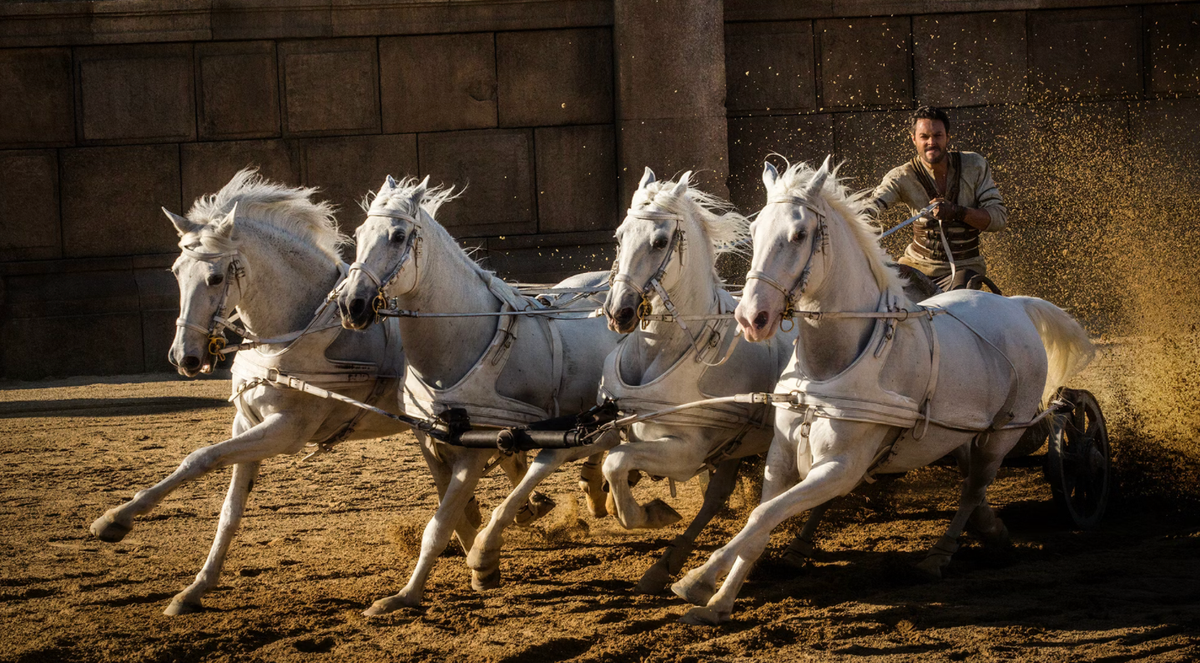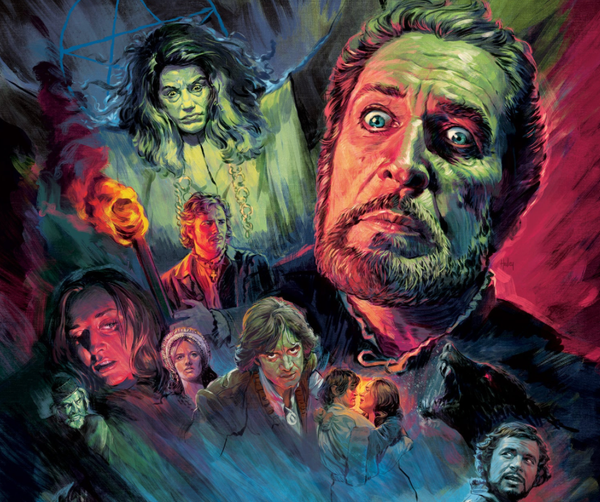Conor Dowling takes the reins in his review of Ben Hur.
You finally really did it. You maniacs! You remade Ben Hur. Damn you… wrong Heston reference? Apologies, but the sentiment is the same. That’s right, people, one of the most celebrated epics in cinema history has been given the Hollywood reboot treatment. That film, of course, is Ben Hur. Even though most people can’t seem to fathom that the iconic film from 1959 has been remade, this is actually the fifth film adaptation of the original novel, the Heston vehicle being the third.
Set in Jerusalem during the Jesus era, the story follows two brothers, nobleman Judah Ben Hur and his adopted brother Messala. The brothers are separated when Messala joins the Roman army and leaves Ben Hur behind to live out his days as a prince in their family home. Upon Messala’s return, though the brothers remain amicable, there is tension between the Roman forces and the people of Jerusalem. A misunderstanding leads Messala’s soldiers to believe Ben Hur is against them, and Messala is forced to place Ben Hur under arrest. Ben Hur is then stripped of his titles, his family are taken prisoner, and he is led to the underbelly of a Roman ship with other slaves and criminals, forced to row for years to the beat of a drum at whip-point.
Hur barely survives the shipwreck after a Greek attack and is washed ashore, only to be sheltered and mentored by none other than Morgan Freeman. After Ben Hur proves his worth by nursing one of Freeman’s sick horses back to health, he begins a Count of Monte Cristo-esque quest for vengeance and redemption. Ben Hur returns to his homeland to seek out what is left of his family and to challenge his brother to an epic chariot race. A bite-sized version of the Jesus story, including the crucifixion, runs alongside the main plot of the film and mirrors themes of forgiveness that are dealt with in Ben Hur’s journey.
What if I told you we’ve got the director of Night Watch, the writer of 12 Years a Slave, Morgan Freeman, Oscar-winning source material and 100 million dollars? I think that sounds like a pretty good recipe, to be honest. So what happened here? I’m not saying this was a horrendous film, pardon the pun, but there were definitely problems that you might notice too if you see the film.
What this film did well were the set pieces, nicely executed battle scenes, costume and set design. There is one fantastic action sequence involving a shipwreck, brilliantly executed with CGI that elevated this moment in the story to an edge-of-your-seat cinematic experience. However, I have to say, when I heard this was a 100-million-dollar Hollywood movie, I was surprised, to say the least. The film achieved some spectacular moments through CGI, but at times it felt like that was all the filmmakers cared about, and the drama scenes in between were just a vehicle to get us to the more action-packed moments.
When you’re dealing with a tried-and-tested story like Ben Hur, after you get past a certain point in the film, as an audience member you just want to know how it will all turn out, because it’s a well-crafted story. We want to see the chariot race, brother against brother, and so on, but by this stage of the film do we care enough about the characters to see the outcome? This may be controversial, but despite the film’s shortcomings, as an audience member I did, in fact, care about the resolution of this sibling rivalry.
The film features a mostly white cast with posh British accents in Jerusalem in the first century. Could this film be another victim of Hollywood whitewashing? The TV movie-like presentation of the film meant the appearance of a huge star like Morgan Freeman, midway through, was not only unexpected but undeserving of his presence. Freeman gave a solid performance as always, but something about an African character in Jerusalem in the first century with an American accent really jars with me. I have to admit I laughed when, out of nowhere, Morgan Freeman suddenly started narrating the end of the film. I suppose, though, if you’ve got Morgan Freeman in your film, you’re going to get him to do voiceover at some stage; it might even be in his contract.
To talk about this film without comparing and at least mentioning the Heston version is impossible. The story in this version differs from the 1959 version at points, mostly in the treatment of the relationship between the brothers, but it still pays tribute to the classic moments, from Jesus giving Ben Hur water to the climactic chariot race. The problem is that this film has some big shoes to fill.
Three things in particular guarantee the 1959 Ben Hur a place in cinematic history: shot on glorious 65mm, Heston’s electrifying performance and the sheer scale of the production. Legions of extras and sprawling sets were one of the main ingredients that gave the 1959 film its massive sense of scale, something that’s sorely missed from the 2016 version. The cold digital look of 2016’s version immediately loses the film points for cinematic quality, and though Jack Huston was engaging at times as Ben Hur, he spent the second half of the film with a hoarse Batman-type of voice, which was difficult to take seriously.
Despite the film’s flaws, there will be an audience for this swords-and-sandals epic. Ben Hur will not be for lovers of the original four-hour film, but for those looking to fill a Game of Thrones or Vikings-shaped hole in their lives, Ben Hur will just about do for now.
Ben Hur is in cinemas Wednesday, 7th September 2016.


